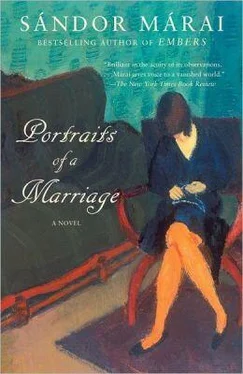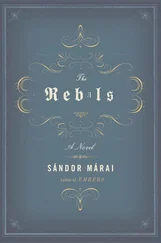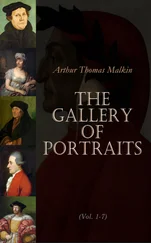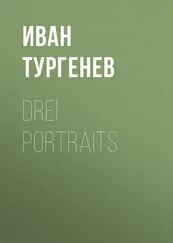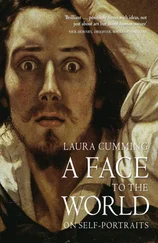I had to laugh. But the pounding in my breast did not calm down. My heart was beating just the way it did the day I was to taken to the hospital to have the baby. But that second wild beating of the heart was a sweet and happy sensation.
I carried on down the street, walking as fast as I could, feeling cheated, left out of something. My husband didn’t want me to meet with this extraordinary man he felt privileged to know from his youth. My husband was not much of a talker generally. I felt I was being cheated, even betrayed somehow. My heart was still pounding that evening when, at the usual time, my husband came home.
“Where have you been?” I asked as he kissed my hand.
“Where?” He looked blank. “Nowhere. I’ve come home.”
“You’re lying,” I said.
He gave me a long look. He looked almost bored as he answered.
“You’re right. I forgot. I bumped into Lázár. We had coffee together. You see, I had forgotten. Did you see me in the café?”
His voice was sincere, calm, and just a touch surprised. I felt ashamed of myself.
“Forgive me,” I said. “I just feel unhappy knowing so little about that man. I don’t think he is a true friend of yours. Nor of mine. Of either of us. Do please drop him. Try to avoid him,” I begged.
My husband gave me a curious look.
“Oh,” he said and wiped his glasses with great care, as always. “There’s no need to avoid Lázár. He is never intrusive.”
And that was the last time he mentioned him.
By now I wanted to know everything about Lázár. Having found some of his books — all dedicated, with special inscriptions — in my husband’s library, I read as many as I could. What was peculiar about the inscriptions? They were … how to put it? … disrespectful … No, that’s not the right word … they were strangely mocking. It was as if the author despised not only the dedicatee, but his own books, and himself for ever having written them. There was something a little self-deprecating, ironic, melancholy, in the tone of them. It was as if what he had really written under his name was: “All right, I’ve signed, but I am not quite the person this book implies I am.”
Up to that point I’d regarded the writer’s calling as a kind of secular priesthood. The book was the solemn pulpit from which such people addressed the world! I couldn’t understand everything he wrote. It was as if he disdained people, even the reader, people such as me, and was determined not to reveal anything valuable about himself. Readers and critics had a great deal to say about that tendency of his. There were many who hated the writer, though, of course, some people hate anyone who is well known. He never spoke about his books or about literature when we met. He just wanted to know something about everything. One evening he called in and I had to explain to him in great detail how to prepare rabbit stew. Would you believe it? Yes, rabbit stew. He wanted it down to the last detail; he even asked the cook. Then he started talking about giraffes. It was all very interesting. He could talk about anything and he knew a great deal; it was only literature he never spoke about.
Was there a touch of madness in the two of them? I myself thought there might be at first. But then I dismissed the thought. It was simply — as so often in life — not what I expected. They were not mad, I thought, they were just peculiarly private people.
Then Lázár dropped out of our lives. We read his books and articles, but we didn’t see him. Sometimes there was gossip about his connection with some politician or a well-known woman, but no one knew anything for sure. Politicians swore that our famous author-friend was a member of their party; some women boasted of having captured this elusive exotic beast and bound him head-to-foot. But time after time, the fugitive went to ground and disappeared. Years passed and we saw nothing of him. What was he doing in that time? I don’t know. He lived. He read. He wrote. Maybe he performed conjuring tricks. And that reminds me …
It’s five years later now. I’d been married to my husband for eight years. The baby was born in the third. Yes, it was a boy. I sent you his photograph. I know — he was gorgeous. Then I stopped writing to anyone, including you. The child was everything: he was all I lived for: everyone else, close or distant, disappeared. One shouldn’t be allowed to love so intensely. Nor should anyone be the object of such love, not even our own children. Love is the fiercest kind of selfishness. So yes, when the child was born, our correspondence came to an end. You were my dearest friend, but I didn’t need you — not even you — anymore, because the child had arrived. Those two years while the child was alive were as much happiness as the world could offer. I felt superhuman, calm and fearful at once. I knew the child wouldn’t survive. How did I know? People just know such things. Some of us feel everything and are fully aware of our fates. I knew that such happiness, such beauty and goodness as was concentrated in that little child, was not to be. I knew he would die. No, don’t argue, and don’t look so horrified: I just know this better than you do. But those two years were years of happiness. He died of scarlet fever. It was winter, three weeks after his second birthday.
Why do innocent children die? Can you tell me that? Have you thought about it? I have thought deep and long. Not even God answers questions like that.
I don’t have very much else to do, so this is what I think about. Yes, even now. And I will think about it as long as I live. One never recovers from such a loss. The death of a child is the one true form of torture. Everything else is merely a shadow of this one agony. You are not acquainted with it, I know. And you know what? I don’t know what to say, whether I envy or pity you for not knowing it … I think I pity you.
Perhaps it would have been different if the child hadn’t arrived that third year. And other things might have been different too, very different, if he had survived. They might. A child is, after all, the greatest of miracles, the one true meaning of life; and yet — we shouldn’t deceive ourselves on this point — no child can resolve the problems between two people. A child cannot calm fits of anxiety or solve insoluble complexities. But there’s no point in talking about that now. The fact is, the child was born on a particular day, lived two years, and then died. I spent two more years after that with my husband, and then we separated.
I’m quite sure now that we’d have separated in the third year of the marriage had it not been for the child. Why? … Because by that time I knew I could not live with my husband. There is no pain like the pain of knowing you love someone but cannot live with them.
“Why?” I asked him once, and he told me what he thought the problem was.
“You want me to give up my humanity,” he said. “I can’t do that. I’d sooner die.”
I immediately understood and replied: “Then don’t die. Live on and remain a stranger to me.”
He always meant what he said: he was that kind of man. He didn’t always do it straightaway — sometimes it took a few years for words to become deeds, but sooner or later deeds followed. Other people talk about hopes and plans after supper by way of conversation, then immediately forget what they’ve said; when my husband talked of such things, action followed. It was as if he were bound to his words in some visceral way: what he said once remained with him and would not let him go. If he said “I would sooner die,” then I was to know he meant it, that he would not surrender himself to me but would rather die first. It was part of his character, his fate … Sometimes, in the course of a conversation, he would let fall a few words, criticizing somebody, or suddenly reveal a plan — then time would pass without further mention until, one day, I’d notice that the person he’d criticized had vanished from our lives; that the plan mentioned in passing had two years later turned into reality.
Читать дальше
